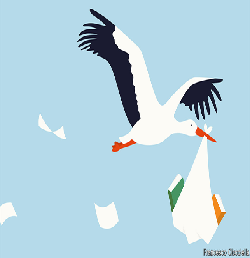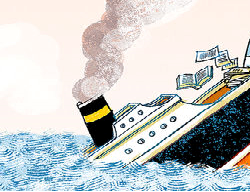February 2019 Research, Science and Knowledge
Read the articles selected in February 2019
Copyright Directive: EUA position ahead of a final agreement
Source: https://eua.eu
The EUA welcomes all the exceptions established in the provvisory text of the new Directive for research and education purposes, concerning both text and data mining and the scientific editors, recommending their implementing and extension, in order to make full use of the opportunities offered by digital technologies.
Read more:
Getting skills right: future-ready adult learning systems
Source: www.oecd.org
This report analyzes the adult learning systems across Oecd countries, identifying the areas where action is needed to strenghten the resilience of individuals, firms and economies in front of the global and technological changes that are transforming the type and quality of jobs.
Read more:
US science society launches research hotline for politicians
By Paul Basken
Source: Times Higher Education, 19 February
The American Association for the Advancement of Science has launched an initiative to assist with scientific expertise the legislative bodies in their political decisions for a better functioning of democracy, given that lawmakers, usually, lack good scientific advice.
Read more:
https://www.timeshighereducation.com/news/us-science-society-launches-research-hotline-politicians
Major medical journals don’t follow their own rules for reporting results from clinical trials
By Jocelyn Kaiser
Source: Science, 15 February
A study has found that the published results of clinical trials routinely deviate from the initial hypotesis of study. Only nine of 67 trials published in five major journals reported outcomes correctly and complying with the required standards.
Read more:
Decolonisation of higher education is not just a buzzword
By Budd L Hall
Source: University World News, 15 February
The decolonization of higher education starts from the end of epistemic dominance and exclusion, and the validation of scientific thought.That means also teaching differently, in order to fill the ethnic inequalities within our institutions. Only so can decolonisation be a transformative opportunity .
Read more:
https://www.universityworldnews.com/post.php?story=20190213074031552
EUA’s response to the Plan S Implementation Guidance
Source: https://eua.eu
Eua recommends flexibility in the implementation of Plan S, given its large-scale impact in the global context. It suggests on the one hand a change in the research assessment practices, moving away from journal-level metrics, and on the other one, more transparency of publication costs and subscription prices.
Read more:
https://eua.eu/downloads/publications/turning%20principles%20into%20practice%20alternate.pdf
Proposal for a regulation of the European Parliament and of the Council
Source: https://eua.eu
Erasmus+ is a key tool to reach the European Education Area by 2025. This proposal contains measures to avoid the interruption of learning mobility activities from 30 March 2019. If the Withdrawal Agreement between the UK and Europe is not ratified, many students risk to lose their credits.
Read more:
https://ec.europa.eu/info/sites/info/files/com-2019-65_en.pdf
Thanks to education, global fertility could fall faster than expected
Fonte: The Economist, 31 January

The decline in fertility is a trend resulting also in the poor countries, and after some demographers it is underestimated even in the UN projections. In a long-term time, it is closey linked with education, even more than to contracception. Education gives women the capacity to question their cultural norms.
Read more:
6 ways to future-proof universities
By Jaci Eisenberg
Source: https://www.weforum.org
Data science with a strong mathematical support and embed ethics is one of the most important fields that universities should promote in our times, but also research with no immediate application, that is basic research, as well as the cultivation of curiosity.
Read more:
https://www.weforum.org/agenda/2019/02/6-ways-to-future-proof-universities/
University leaders hit out at firms’ “dangerous” skills obsession
By David Matthews
Source: Times Higher Education, 24 January
Davos has been the framework of a meeting which has dismantled the commonplace that universities should train youngs only for their job, since only a not restricted knowledge gives them the capacity to reskill and to find a second and a third job after the first one.
Read more:
Ten European principles for the enhancement of learning and teaching
Source: https://eua.eu
With the advancement of knowledge the world is undergoing a change, and consequently also the way knowledge is produced and transmitted. The European reforms of higher education have enhanced new methods of learning and teaching, making them the core of academic practice.
Read more:
Online work in Oecd countries
Source: http://www.oecd.org
The platform economy can be seen as a new opportunity in the world of work, characterized by a greater flexibility, which raises concerns for labour and social protections. It’s an expanding phenomenon, yet not easy to understand, being mostly unreported and informal.
Read more:
http://www.oecd.org/els/emp/future-of-work/Online_Gig_Work.pdf
Plan S: how important is open access publishing?
By Rachael Pells
Source: Times Higher Education, 24 January

Open Access rules affect researchers’ freedom to publish everywhere: and even if that seems to be a hurdle for the career of the youngest ones, the true question is if open access does promote a better science.
Read more:
https://www.timeshighereducation.com/features/plan-s-how-important-open-access-publishing
Erasmus+ uncertainty as risk of no-deal Brexit rises
By Brendan O’Malley
Source: University World News, 30 January 2019
Erasmus+programme schemes already running on 30 March 2019 will be not affected by the political turmoil related to the no-deal Brexit, but as for Horizon 2020, universities wonder how it will work once the UK becomes a “third country”.
Read more:
https://www.universityworldnews.com/post.php?story=20190130071804172
My first postdoc position was a disaster. This is what I learned
By Victor S.C. Wong
Source: Science, 17 January

This individual experience of post-doc advises to not let be overwhelmed by enthusiam and not to overlook the negative signals from your work environment, keeping yourself ready to quit: science needs energy and collaboration.
Read more:
http://www.sciencemag.org/careers/2019/01/my-first-postdoc-position-was-disaster-what-i-learned
Promoting active learning in universities
Source: https://eua.eu
Active learning, centered on the discent, no longer considered as a passive container of notions, but as a subject actively and creatively involved in problems, is one cultural challenge, which forces to rethink the knowledge in a super-complex world, as well in an open, democratic and inclusive society.
Read more:
OECD unemployment rates stable at 5.2% in November 2018
Source: oecd.org, 15 January
Across Oecd countries, in November 2018 33.2 millions people resulted stably unemployed. The euro area reports a decrease in the unemployment rate to the 7,9%. The youth unemployment in Europe remains a weak point, in spite of some improvement perceived also in Italy.
Read more:
http://www.oecd.org/sdd/labour-stats/harmonised-unemployment-rates-oecd-01-2019.pdf
Western universities mull Indonesian branch campuses
By John Ross
Source: Times Higher Education, 28 January

A regulation just ratified in Indonesia will allow foreign universities ranked among the world’s top 200 to operate in special economic zones in partnership with Indonesian universities, as long as they meet local requirements for programmes and staff.
Read more:
https://www.timeshighereducation.com/news/western-universities-mull-indonesian-branch-campuses
Scientific societies worry about threat from Plan S
By Jeffrey Brainard
Source: Science, 25 January

Plan S, wanted by the EC for an open access science, is worrying scientific editors and societies, also for the recent adhesion of China. Meanwhile, Plan S funders intend to cooperate with the scientific groups to safeguard the quality of their titles while giving up their revenues.
Read more:
http://science.sciencemag.org/content/363/6425/332
International student tuition and the funding crisis to come
By Paul Schulmann
Source: University World News, 25 January
The decrease in international students and and a greater decline of domestic enrolment has shown the short-sightedness of the tuition-fee based funding model, after that in the USA, the withdrawal of state support from higher education was strategically but unusefully compensated by international enrolment.
Read more:
https://www.universityworldnews.com/post.php?story=20190121080047664

